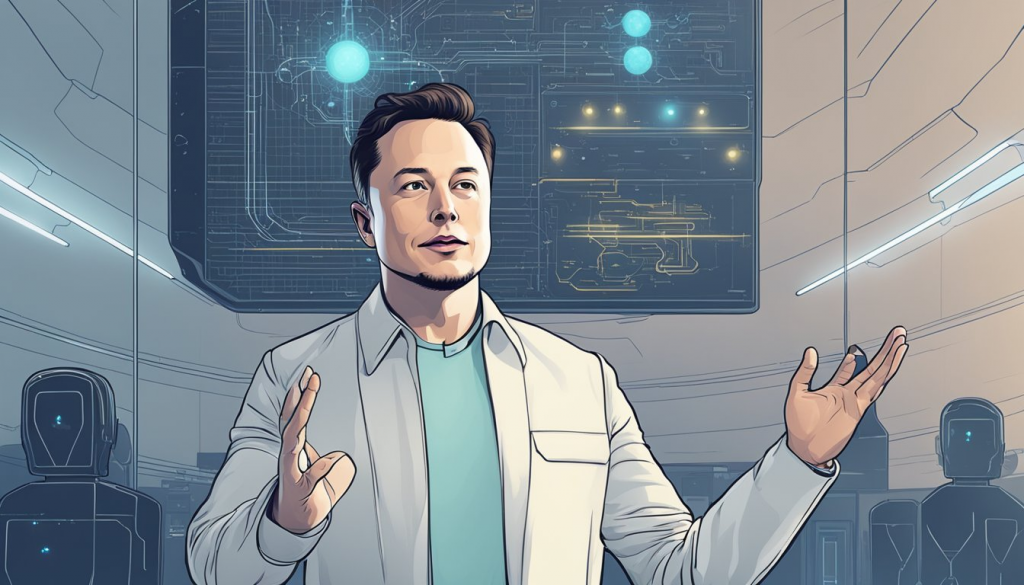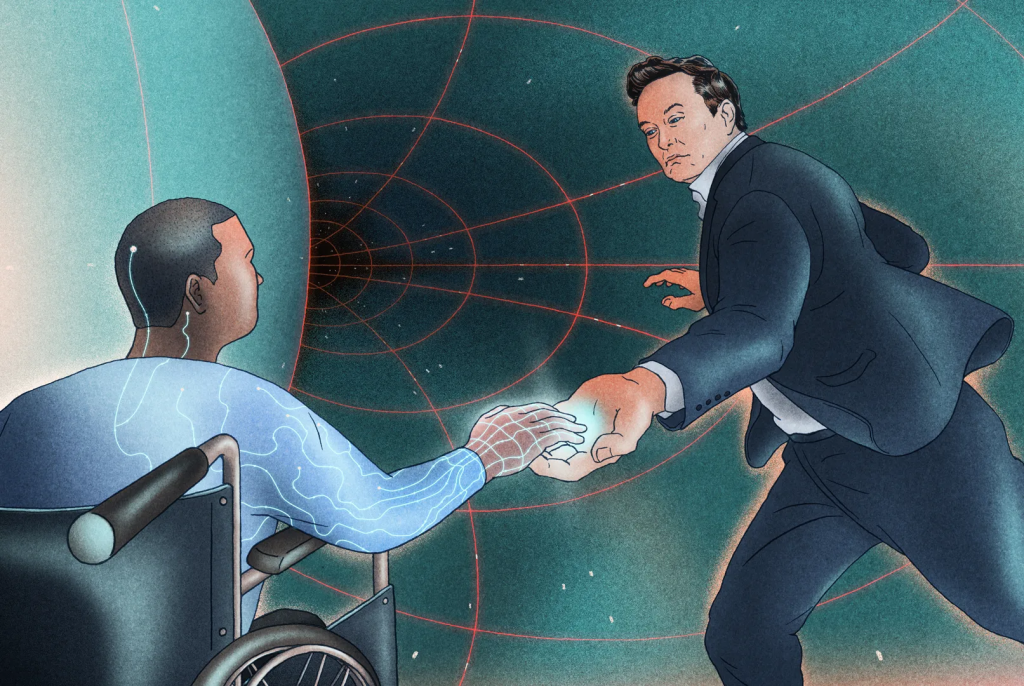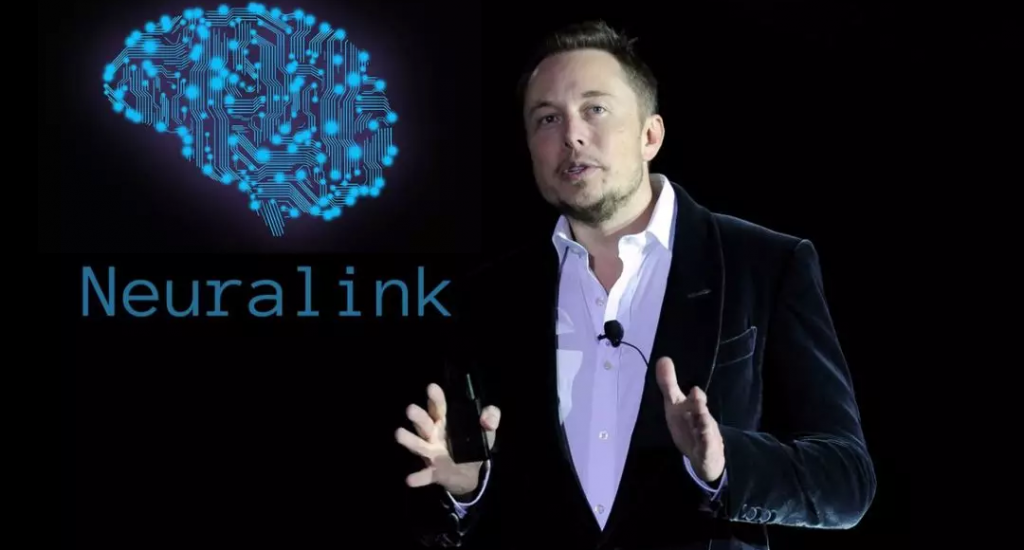
Elon Musk’s venture into the realm of combining the human brain with technology is taking shape through his company Neuralink. This neurotechnology company aims to create a seamless connection between the brain and computers using advanced brain-computer interface (BCI) technology. Musk’s vision for Neuralink is not only to aid those suffering from neurological conditions but also to enhance human potential by integrating biological and technological systems.

In late November 2023, Neuralink made headlines by implanting its brain chip into a human for the first time, marking a major milestone in the quest for human-computer synergy. The chip, which is designed to be implanted in the brain via robotic surgery, is capable of reading and transmitting brain signals. This technology aims to allow individuals to control devices like computers and smartphones with just their thoughts, potentially helping those with severe physical impairments, such as paralysis, regain some autonomy

The long-term goal of Neuralink extends far beyond medical applications. Musk has envisioned a future where these brain interfaces could significantly enhance human cognitive capabilities, allowing people to augment their brains with advanced computational power. Although currently focused on therapeutic applications, Neuralink’s progress could pave the way for more widespread use, potentially transforming not just healthcare but human capabilities as a whole

However, the path forward is not without challenges. There are substantial ethical concerns about the implications of cognitive enhancement, privacy issues surrounding brain data, and the potential for societal divisions if such technology becomes accessible only to a select few
Despite these hurdles, Musk’s ambitious project has the potential to redefine the boundaries of human-machine interaction, opening up a new era where technology directly enhances our cognitive abilities.

As Neuralink progresses, it will likely spark debate on both its scientific and ethical dimensions. If successful, it could lead to breakthroughs that change the way we think about human potential and our relationship with technology.

